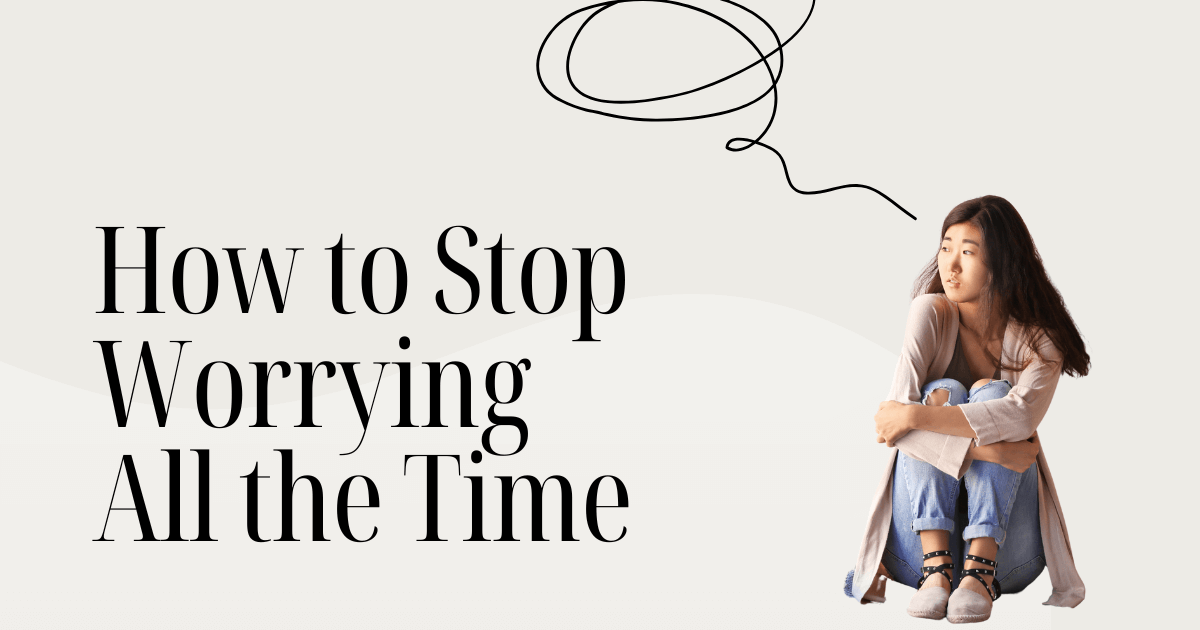

Worrying is part of human nature. We all have such stressful lives, and sometimes we can find ourselves a little bit overwhelmed.
Although a bit of worrying is healthy, as it shows concern, too much worrying is unhealthy and should be addressed.
Take a look at these simple tips to identify how you might be able to stop worrying all the time and work towards a more relaxed, stress-free lifestyle.
How to stop worrying constantly:
- Prioritize your concerns. Stop your thoughts from constantly racing around your head. Take some time to sit down and work out exactly what is concerning you.
- By writing down your concerns, you are creating space in your head for new calming, relaxing thoughts.
- Writing down the things that are worrying you can help you organize them. From there, categorize and prioritize.
- Remember to relax. It’s important to have some time off from your busy schedule to relax and free your mind of excess worry.
- Consider starting a new hobby, spending time with a friend, or doing something that you enjoy that takes your mind off your worries.
- Find a hobby or an activity that relaxes you, and allows you to destress. By having time to yourself, you will be far less likely to feel anxious and worried constantly, as you are finding the balance between stress and relaxation.
- Consider starting a new hobby, spending time with a friend, or doing something that you enjoy that takes your mind off your worries.
- Share your problems. Sometimes, simply talking to somebody about our concerns and worries is enough to help offload the guilt and burden we can sometimes feel.
- Once you express your thoughts and share your worries with the people you trust, they can help advise you and ease the load. By discussing exactly what you are feeling, you will be taking control of your concerns and others can take a proactive approach to support you.
- This will make you feel much calmer, but also allow you to receive advice and suggestions from different perspectives that you may not have considered before. You don’t have to worry in silence.
- Once you express your thoughts and share your worries with the people you trust, they can help advise you and ease the load. By discussing exactly what you are feeling, you will be taking control of your concerns and others can take a proactive approach to support you.
- Consider exercising. It’s well documented that exercise has fantastic health benefits, and it could be the perfect way for you to let off some steam and really destress.
- If you have something you are worrying about unnecessarily and you just don’t know how to stop worrying about it, consider hitting the gym, doing some exercise, or going for a run.
- Exercise makes you feel great both physically and mentally. You can channel nervous energy and stress into positive mental and physical fuel for your workout.
- If you have something you are worrying about unnecessarily and you just don’t know how to stop worrying about it, consider hitting the gym, doing some exercise, or going for a run.
- Slow down and reflect. Consider exactly what you are worried about and if it is rational or irrational.
- Decide on the steps you might take to tackle this concern and create an action plan.
- By doing this, you are seizing control of your worries and trying to tackle them, in order to eliminate them. Work out what you can and can’t control in the short- and long-term, and progress from there.
Work out exactly what is concerning you and then identify how you will deal with it. You’ll be much more likely to feel in control as you can tackle your worries one at a time rather than letting them overwhelm you.
- Decide on the steps you might take to tackle this concern and create an action plan.
Exercising, writing down your thoughts, prioritizing and facing your worries, and sharing concerns with friends are some simple ways of reducing stress and living a happier, more relaxed life.
It’s easy to get overwhelmed or inconsistent when trying to address worry and anxiety. I am here to provide you accountability and encouragement, help you stay on track, tweak your approach when needed, and ensure long-term success with your health goals.
By working with me as your functional wellness coach, you'll receive personalized care that not only improves your stress levels but also enhances your overall health and well-being in the long run!
Apply for a free discovery call today to learn how I can support you!
Lauren Higgs RDH, AFMC














0 Comments